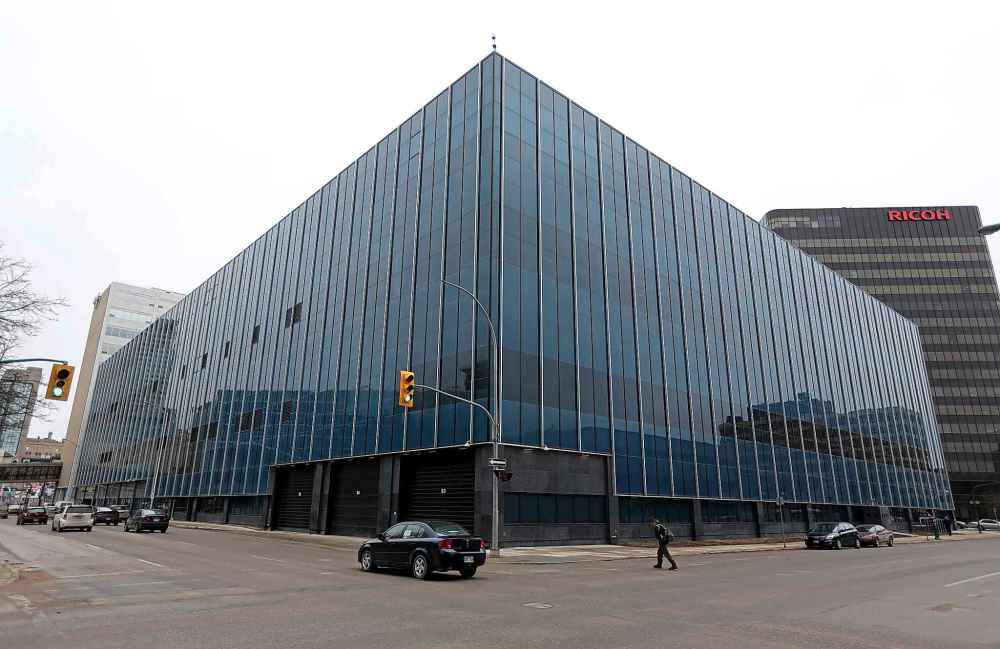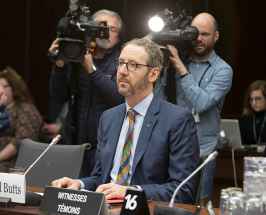Land-deal skepticism is well founded
Read this article for free:
or
Already have an account? Log in here »
To continue reading, please subscribe:
Monthly Digital Subscription
$0 for the first 4 weeks*
- Enjoy unlimited reading on winnipegfreepress.com
- Read the E-Edition, our digital replica newspaper
- Access News Break, our award-winning app
- Play interactive puzzles
*No charge for 4 weeks then price increases to the regular rate of $19.00 plus GST every four weeks. Offer available to new and qualified returning subscribers only. Cancel any time.
Monthly Digital Subscription
$4.75/week*
- Enjoy unlimited reading on winnipegfreepress.com
- Read the E-Edition, our digital replica newspaper
- Access News Break, our award-winning app
- Play interactive puzzles
*Billed as $19 plus GST every four weeks. Cancel any time.
To continue reading, please subscribe:
Add Free Press access to your Brandon Sun subscription for only an additional
$1 for the first 4 weeks*
*Your next subscription payment will increase by $1.00 and you will be charged $16.99 plus GST for four weeks. After four weeks, your payment will increase to $23.99 plus GST every four weeks.
Read unlimited articles for free today:
or
Already have an account? Log in here »
Hey there, time traveller!
This article was published 06/03/2019 (2469 days ago), so information in it may no longer be current.
Once bitten, twice shy: this age-old proverb describes people who have been hurt and are reluctant to trust again.
That’s how many Winnipeggers regard city hall’s record of buying and selling property. Land transactions have been bungled so often in the past, according to audits and investigations, taxpayers justifiably feel bitten and are disinclined to blindly trust city hall’s negotiations of property deals.
Hoping things have improved, the public might be interested in a newly released report from consulting firm Deloitte LLP. The firm’s overview was sought because city hall has previously been accused of mishandling deals such as the Winnipeg Square Parkade, the former Canad Inns Stadium site, the former Canada Post building, the Parker lands transfer and the Forks-area parking lot known as Parcel 4.

The report examines the city’s latest property transactions, 25 deals in 2018. The bottom line? Management falls woefully short of civic criteria for buying and selling.
The report shows that on audited deals, city staff complied with only 18 per cent of criteria. The report found 70 per cent of applicable criteria “were either not met, or could not be subjected to audit due to insufficient proceeding criteria being met.”
City management accepted the report, but noted the criteria are meant as guidelines, not rigid regulations. It said much of the documentation that was noted as missing had been done verbally or via email.
“There are instances of non-compliance which improve the transaction outcome and the branch’s performance,” city management explained. “The department continues to strive to find the right balance between productivity, procedures and processes.”
It’s possible to empathize with management’s concern that productivity will suffer if employees are bogged down by endless paperwork, trying to follow procedures that are impractical and onerous. When we deal as individuals with governments, who among us does not rejoice if we find a bureaucrat willing to cut through red tape and complete our transaction quickly and efficiently?
But in the case of Winnipeg property deals, the city’s recent history of murky circumstances makes it necessary to ensure policies are properly followed.
People who feel city staff should not be handcuffed with procedure and paperwork should be reminded of two arguments: Phil Sheegl and Sam Katz. Mr. Katz was mayor when his close friend, Mr. Sheegl, was hired to be the city’s chief administrative officer. During their shared tenure, deals on behalf of the city were often seen as less than publicly transparent.

Among the controversies were major cost overruns on the new police headquarters and a fire-paramedic station construction program in which an auditor said contracts were unfairly awarded. The RCMP alleged in court documents that a construction firm’s owner gave Mr. Sheegl a $200,000 commission, half of which went to Mr. Katz while he was still mayor.
Mayor Brian Bowman’s successful 2014 campaign was built in large part around a pledge to return accountability and transparency to city processes. The deficiencies identified in the Deloitte LLP report occurred on his watch.
Current city CAO Doug McNeil, who has announced he will retire in April, has praised his staff and said, “I might be leaving, but all those great people are still staying behind.”
The public is eager to believe Mr. McNeil that the city has great people who will represent the taxpayers well in land deals. But after being burned in past transactions, proof of performance is required. The city’s property department should strive to meet the high standards of transparency suggested by the Deloitte consultants.









